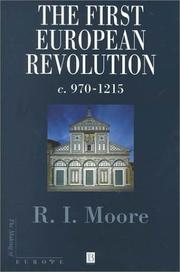[The above video is mostly a
reading of the text below, with an occasional aside thrown in for good measure
as they strike me as relevant. I welcome questions, comments, or concerns about the material contained in
this video.]
For some reason, it’s been second nature to sometimes think – at least since the time of Burckhardt, it seems - of the Renaissance as single-handedly bringing us out of the so-called Dark Ages, which loomed for almost a millennium after the fall of the Roman Empire. There have been occasional attempts at revising this historiographical conclusion, more notably Charles Homer Haskins’ “The Renaissance of the Twelfth Century,” which offer up details on the incredibly complex changes in science, technology, church life, and agriculture which occurred during this time. In fact, some historians claim that the renaissance to which Haskins refers is actually the third in a series of medieval “re-births,” the first two being the Carolingian and Ottonian, which were both intellectual and artistically important in their own right.
R. I. Moore’s “The First European Revolution” picks up Haskins’ revisionist theme and broads his timeline a bit, stretching it from the end of the tenth century to the beginning of the thirteenth, in order to discuss an even wider range of cultural phenomena. During this time, Europe experienced “profound changes in the economic and political organization of the countryside, amounting to a permanent transformation in the division of labor, social relations, and distribution of power and wealth” (p. 2-3). This is a lot of territory to delve into in just around two hundred pages, and the book does seem to suffer from this excessive ambition.
At the end of the tenth century, both the potentes (the powerful) and the paupers (not the poor per se, but the powerless) were both responsible for cereal production, which accounted for almost all agriculture. By the end of this time period, however, almost all food was produced by a group of people dependent on others for their survival (serfs), who became a class in themselves of enslaved workers tied to the land by predictable cycles of grain-growing.
Georges Duby, the French medievalist, outlines the three orders that formed the backbone of medieval society: the oratores (those who pray), bellatores (those who fight), and the laboratores (those who work). At the beginning of Moore’s time period, the first defended the third against the excesses of the swollen warrior classes in the time after Charlemagne, which had exerted their power by the imposition of monogamy, primogeniture, and patrilineage. In time, the Church shifted its support from the laboratores to the aristocratic warrior class, partly because it was promised that land granted to it would never be requisitioned. This is one of the major ways in which we see a Roman Church at the turn of the millennium that is still very loosely organized and weak turn into the powerhouse that it is in the high middle ages.
There are many other really important cultural and social shifts which are discussed in book which I won’t go into here. Suffice it to say that the book establishes a lot of history that is sometimes left unsaid coming up through the beginning of the middle ages, and it fills in a lot of the blanks concerning how the Church grew to be so powerful over a relatively short period of time. As I mentioned earlier, I wish that Moore would have narrowed his scope a bit and focused on one or two of the major changes instead of all of these. Covering so much ground leaves you with a less even presentation of their impacts, and it can feel like he’s trying to stuff too much information into a short space, which gives it a bit of a textbook feel.
At least one reviewer referred to Moore’s prose as “lapidary,” a descriptor with which I would have to take issue. I found the writing a bit dry myself, but it’s one of the few affordable books aimed at a non-academic audience which covers this material that I know of, so I appreciate it nonetheless. Moore has written other books on heresy in medieval Europe which look interesting, too.

No comments:
Post a Comment